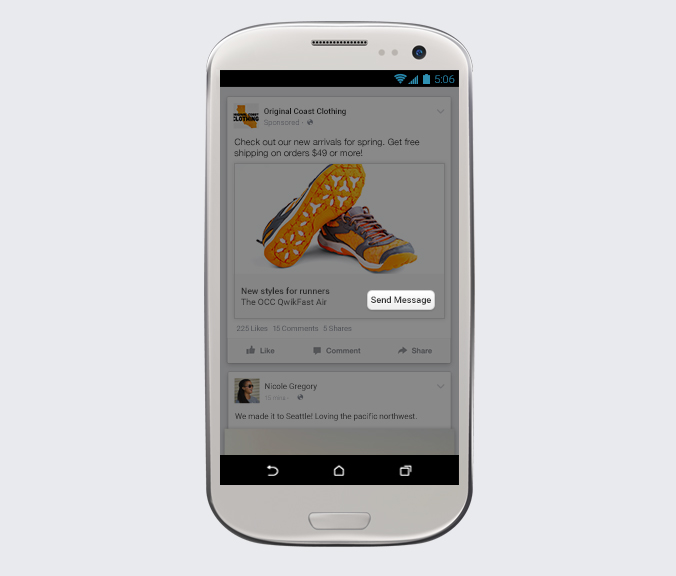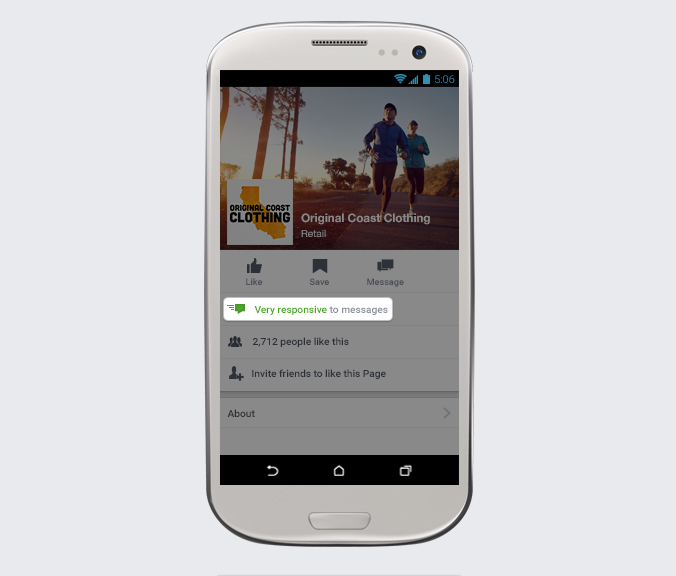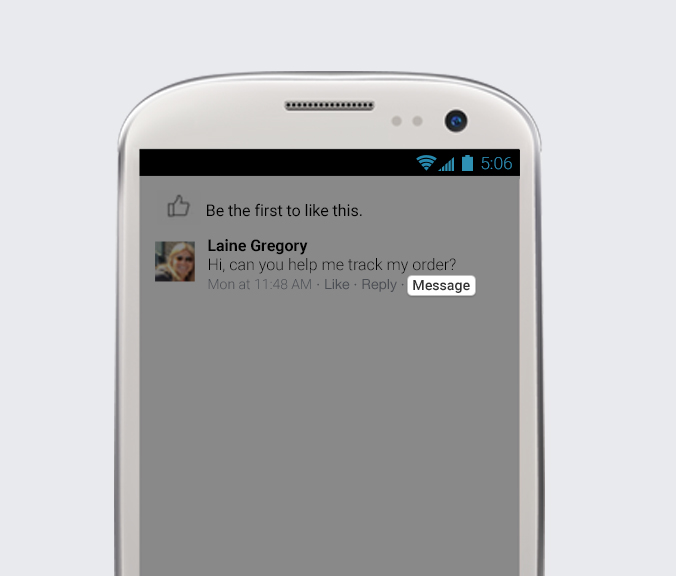If you’re an administrator of one of the 40 million Pages on Facebook, today’s announcement will concern you. Until now, when a user reached out to a business via Facebook, the only way that the administrator could respond is through the same manner — public-for-public or private-for-private. That’s all changing now with the release of Pages Messaging.
To say that Facebook has become a hub of commerce is probably accurate. Over the past decade, the social network seems to have been an epicenter for brands to communicate with the 1.49 billion users visiting monthly. And with 1.5 billion searches being made daily, there’s a lot of potential for companies to have a presence on the platform.
With Pages Messaging, businesses have another way to communicate with their customers — now conversations don’t have to be held in the public space and are accessible beyond the Page itself.
One use case is with ads. When brands advertise on Facebook, they’ll be able to add a call-to-action link that enables users to message them directly if they have a question, complaint, or concern about the item being advertised.
For users engaging in this behavior, Facebook will open up a window to Messenger where they can craft their message. “Incoming messages to Pages include an attachment that shows which ad prompted the person to reach out,” Facebook explained in a blog post. This certainly gives brands another metric to assess which of their ads is engaging and which aren’t performing as well.
But Pages Messaging will also give users an understanding about how much brands are engaged on Facebook. Some Pages are purely about pushing out a message and don’t particularly care about engaging. Users realize this and probably want to know if a brand will actually be responsive to their needs. Today, Facebook is adding a new badge on Pages that help people identify the ones with good customer service skills.
Look on any Page to see this badge. Pages that respond to at least 90 percent of messages and have a median response time of less than five minutes will be listed as being “very responsive”. To users, this could be viewed as a metric to understand that if they have a question, the brand will be prompt in responding.
Facebook says its responsiveness ratings are “dynamic and calculated based on data from the last seven days.” Administrators can see information about their response rate and median response time in Page insights. Currently, only those Pages that meet the aforementioned standard will have a public badge.
Here’s where Pages Messaging can be interesting: In the current state of social media, people post their grievances with brands publicly on Twitter and Facebook. Some, like airlines and other heavily active customer service industries, will respond, but only to try to take it offline by either asking for a DM on Twitter or a message, but then that loses the original content. In Facebook’s case, now brands can reach out without losing content or asking users to take that extra step.
Now that users have more ways to send messages to brands, how can administrators keep organized? Facebook has updated the admin inbox to enable bulk actions, including archiving, deleting, flagging, and marking messages as read, unread, and spam.
To expedite responses, Page admins will be able to open saved replies and send them in one tap, which will be great for commonly asked questions. Those canned replies can always be edited before being sent.
As messaging continues to explode in popularity, Facebook is looking to take full advantage of the opportunity. The company already owns two of the biggest messaging platforms in the marketplace today (Messenger and WhatsApp), so why not make it easier for people by giving them more convenient options to interact with brands online?
Facebook is paying attention to what brands want as well. Once people get adjusted to Pages Messaging, it will probably become second nature when Facebook Messaging Platform begins to take off. In that scenario, customer-brand engagement could essentially all take place right from a single app: Messenger.
What’s more, it’s not far-fetched that with brands feeling that Facebook is listening to their concerns, they in turn may do more business on the social network, including buying more ads.
As noted by TechCrunch, what Facebook is doing could help reduce costs by companies who have expensive call centers. Many people dislike picking up a phone to ask a question — do you enjoy calling Comcast when you’re having TV problems? But Facebook realizes that being on the social network and using its army of apps has become ingrained in our daily behavior, so why not take advantage of that?






